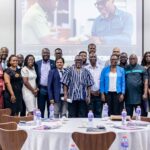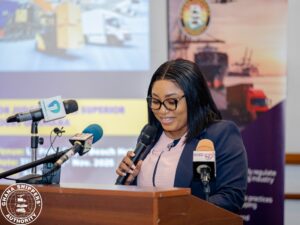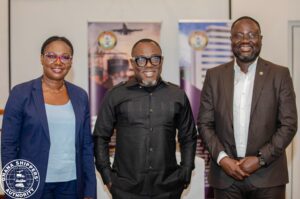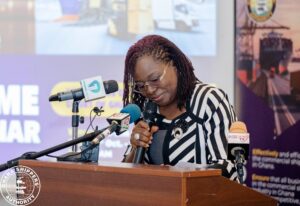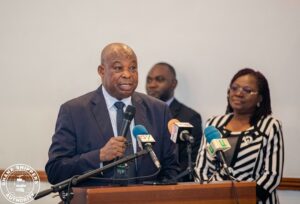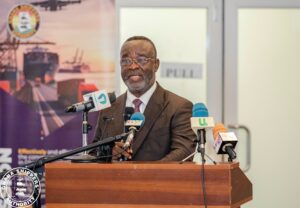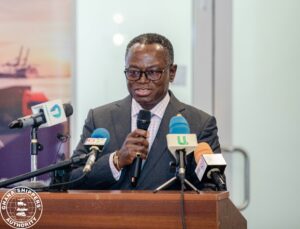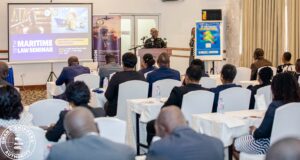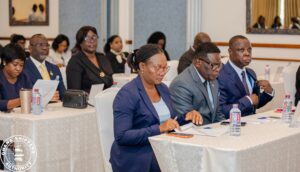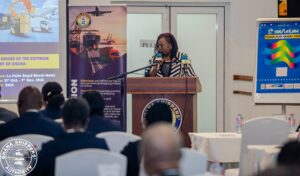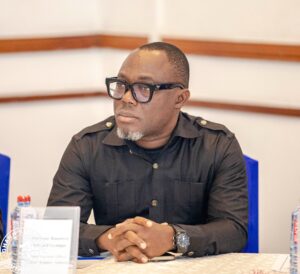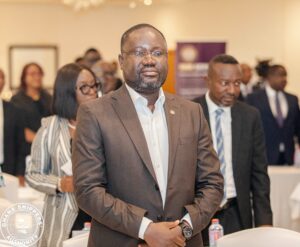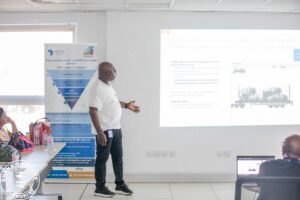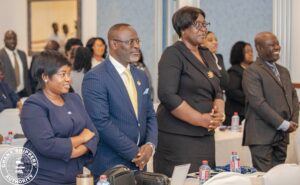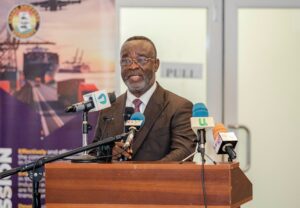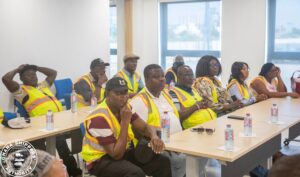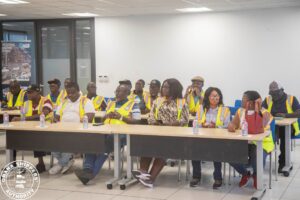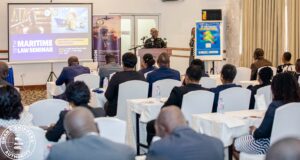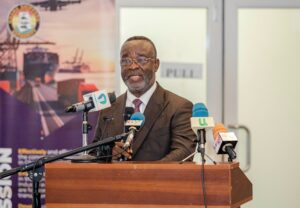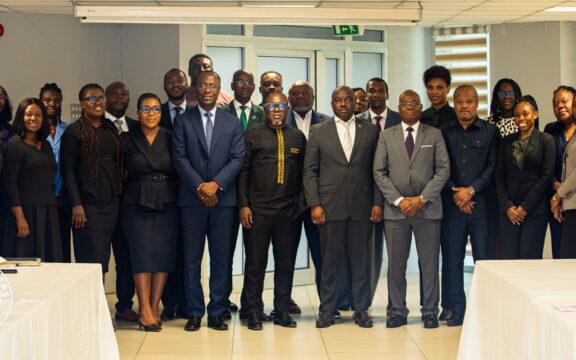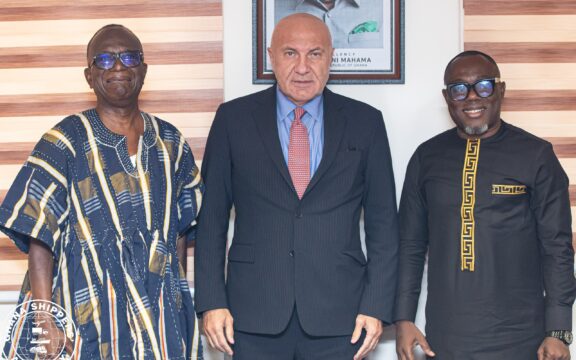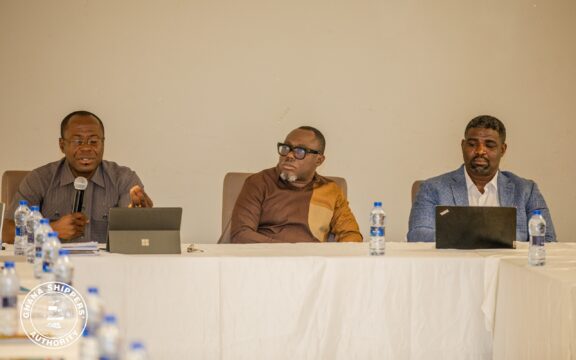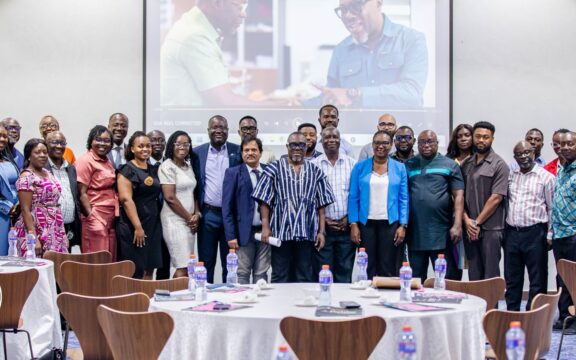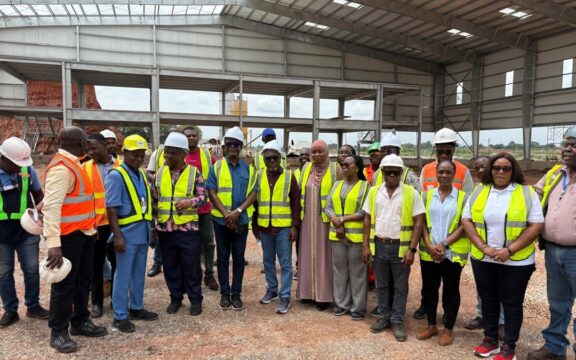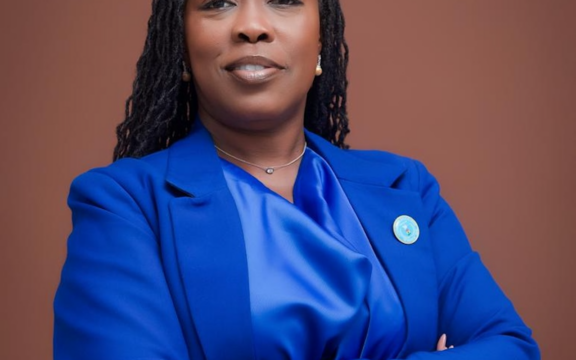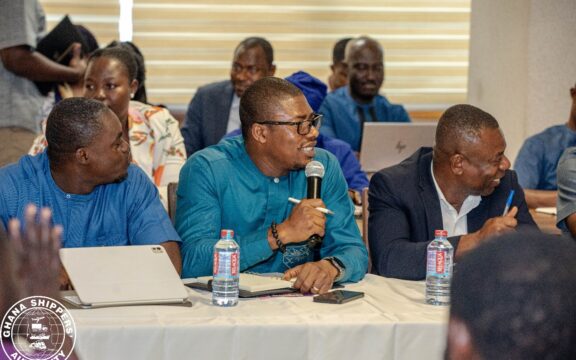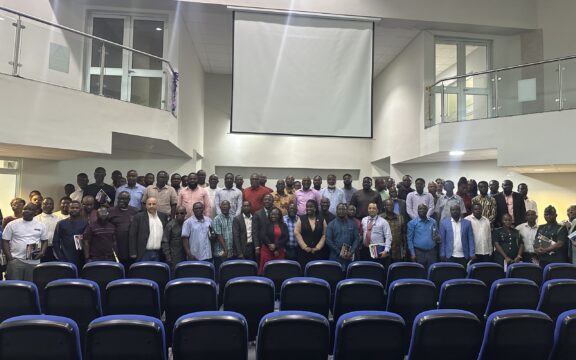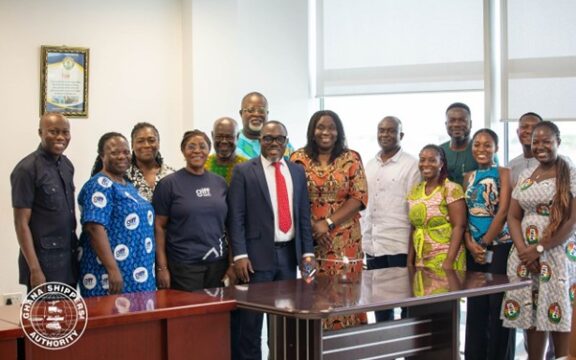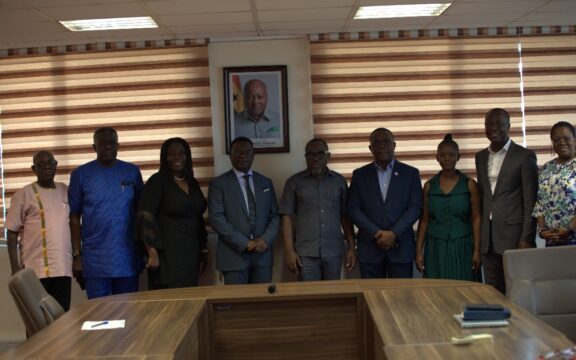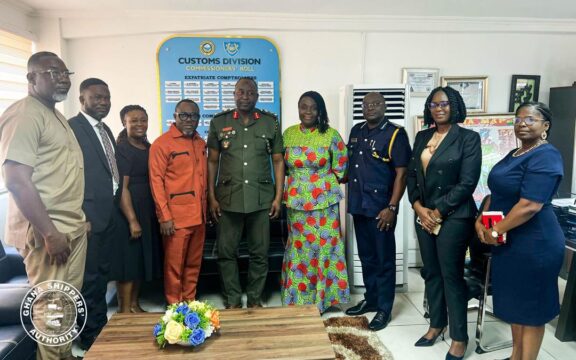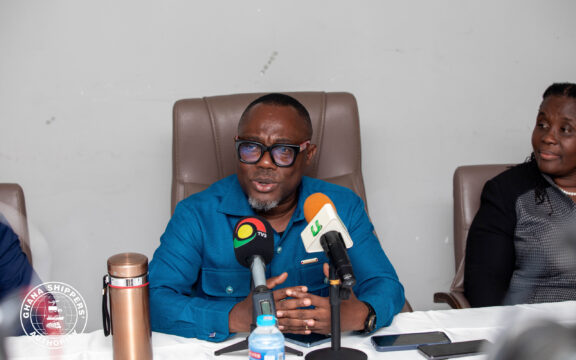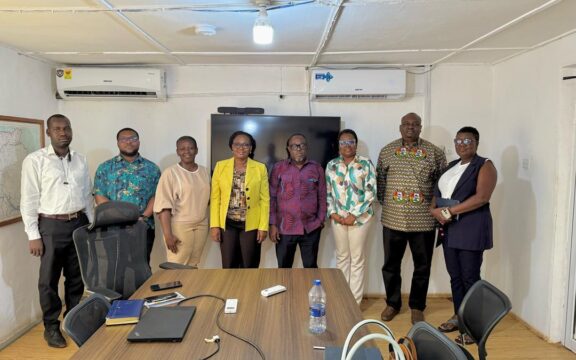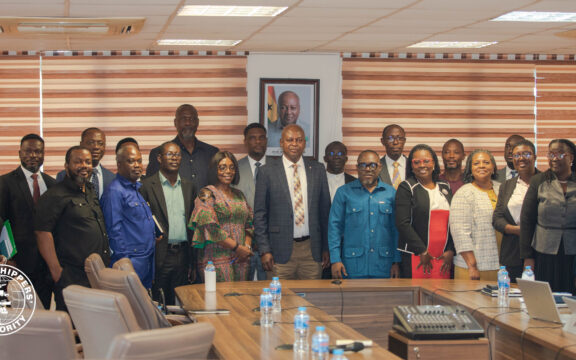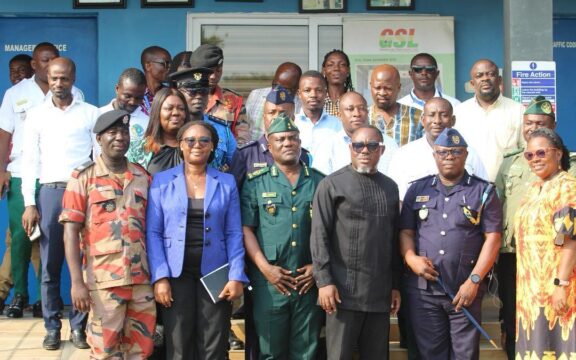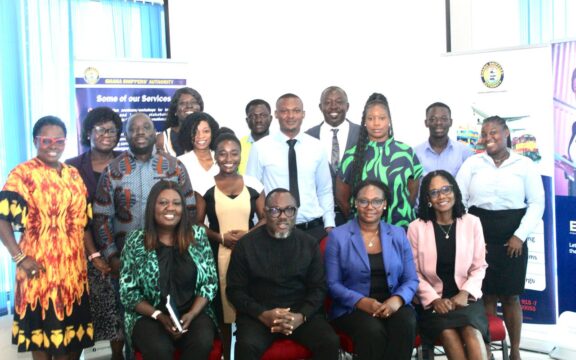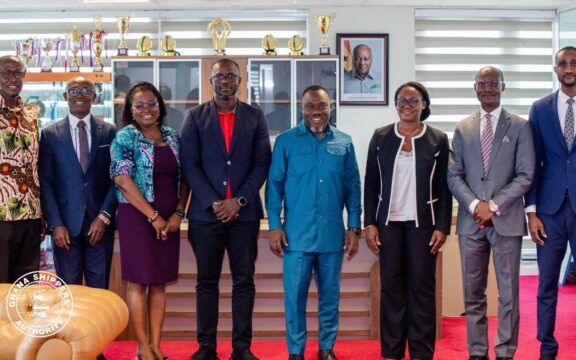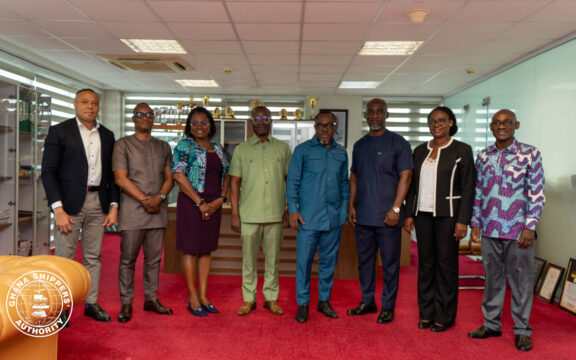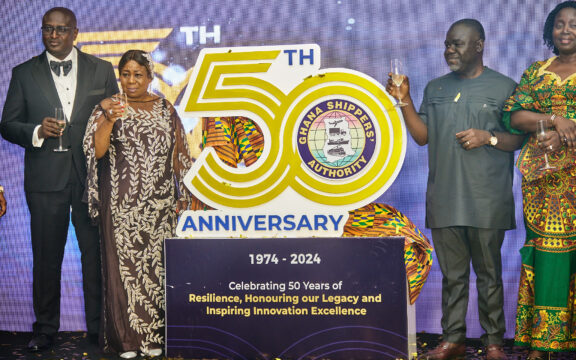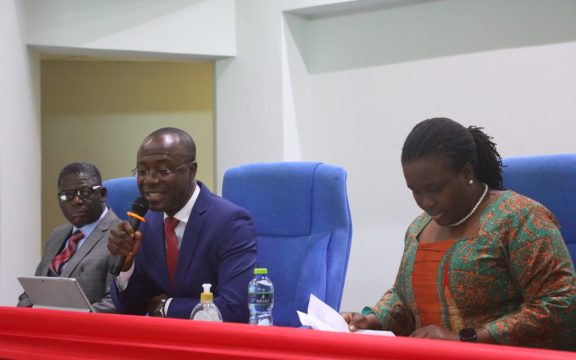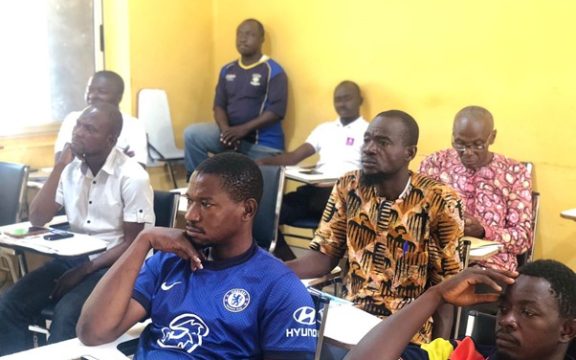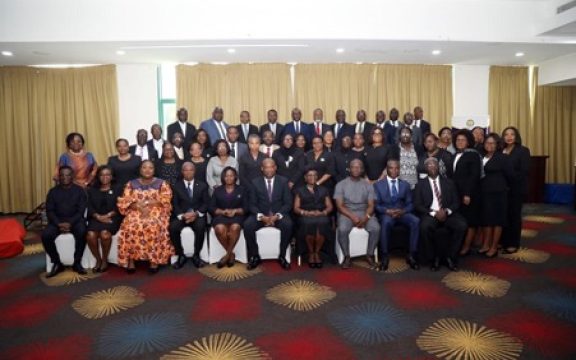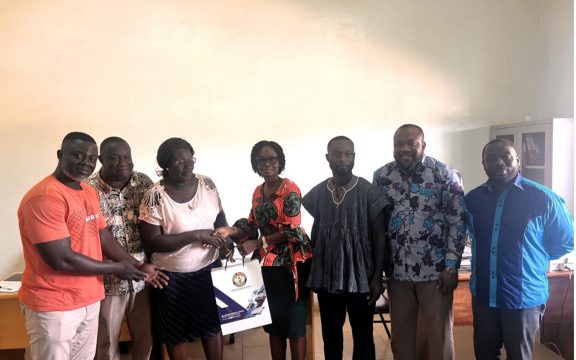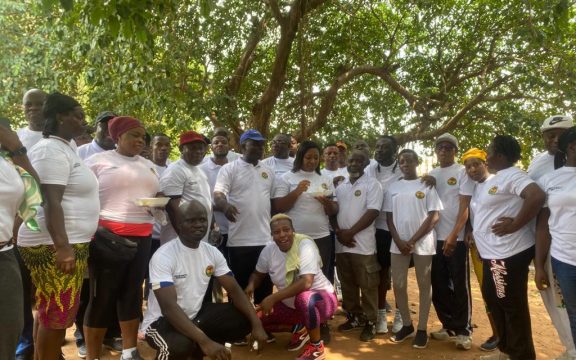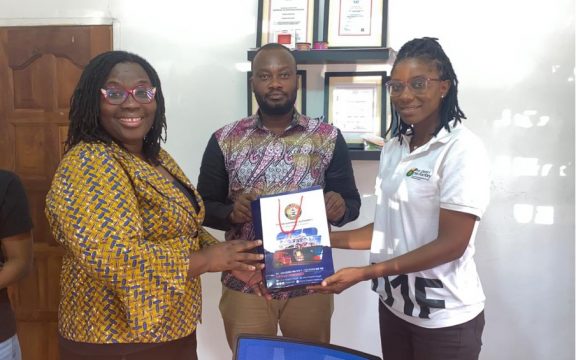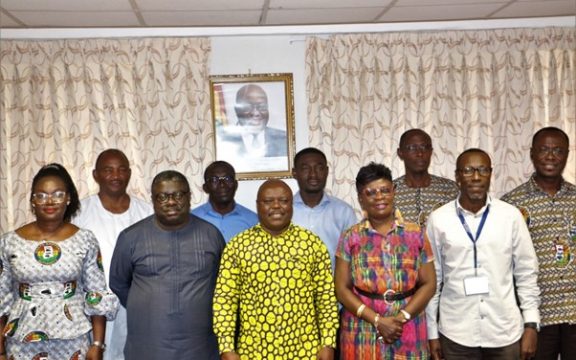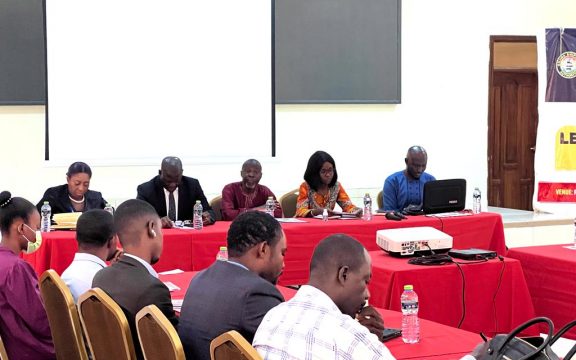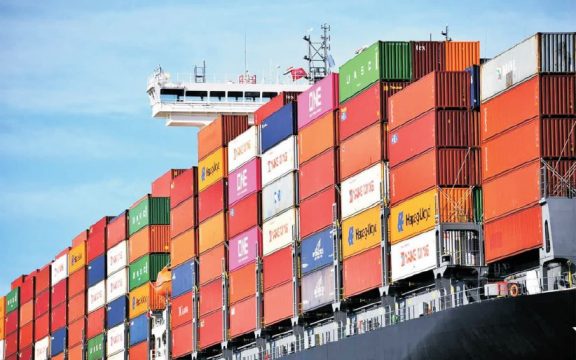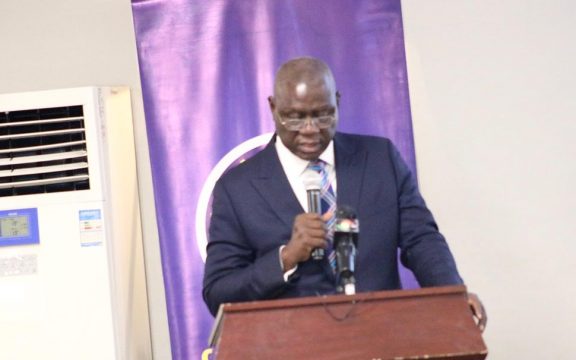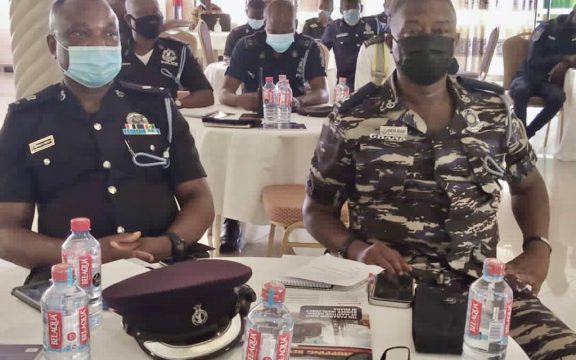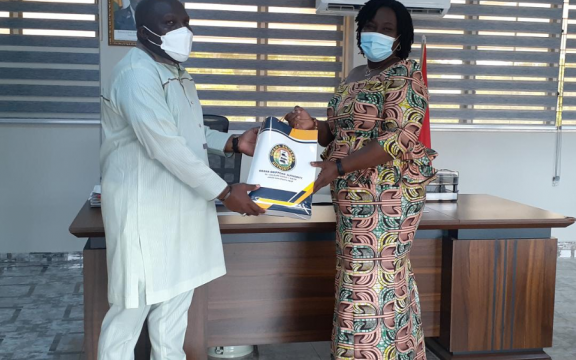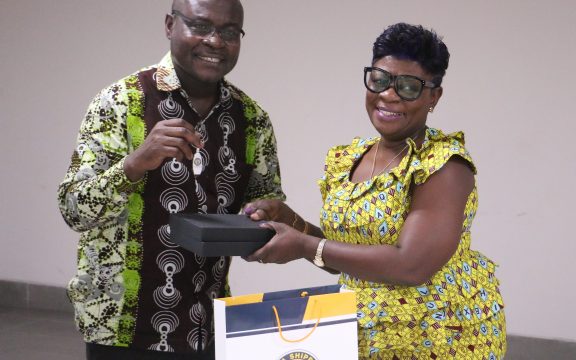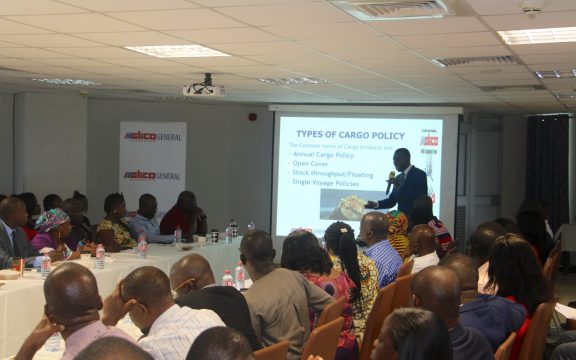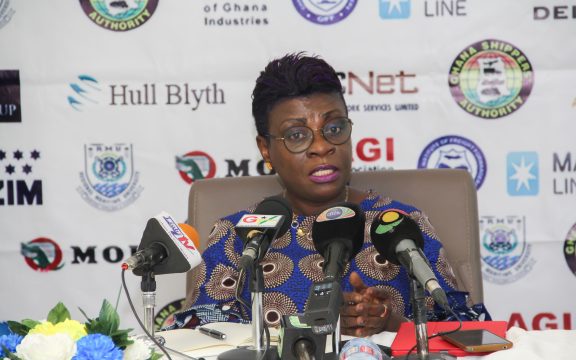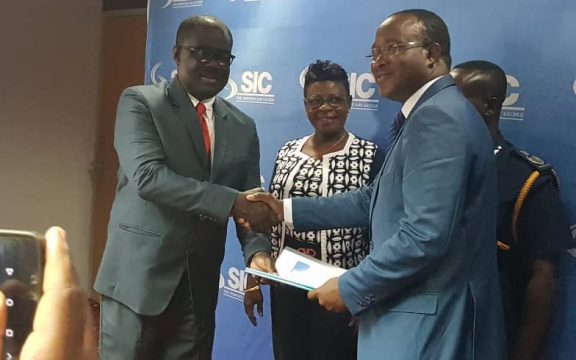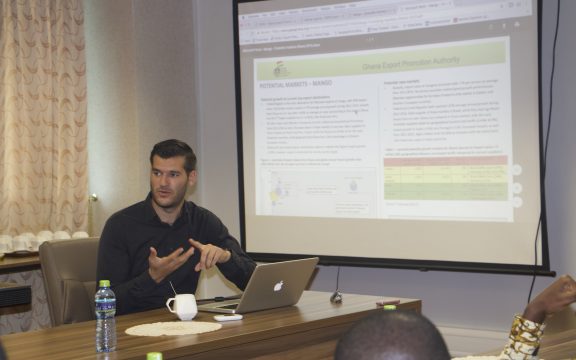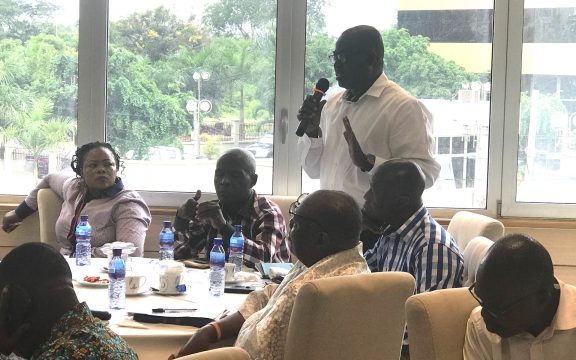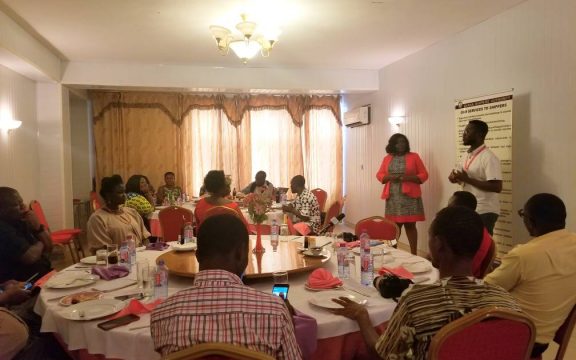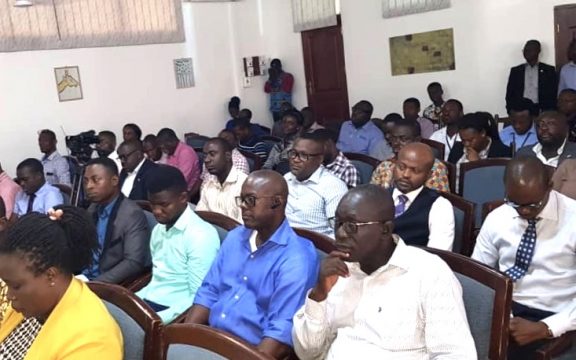Ghana’s Judicial Service and the Ghana Shippers’ Authority deepened their longstanding collaboration further with the holding of the 15th Maritime Seminar for judges of the Superior Courts of Judicature.
The event, which came off on Friday, 31st October 2025, aimed to ensure that the nation’s Maritime, Shipping and Logistics industry continues to thrive on the strong foundation of fairness, efficiency, and global best practice that has been upheld all this while.
Distinguished members of the revered Bench and the Maritime, Shipping, and Logistics industry reaffirmed their shared vision to align Ghana’s maritime jurisprudence with international standards, a step they assert is critical for sustaining growth in trade and investor confidence.
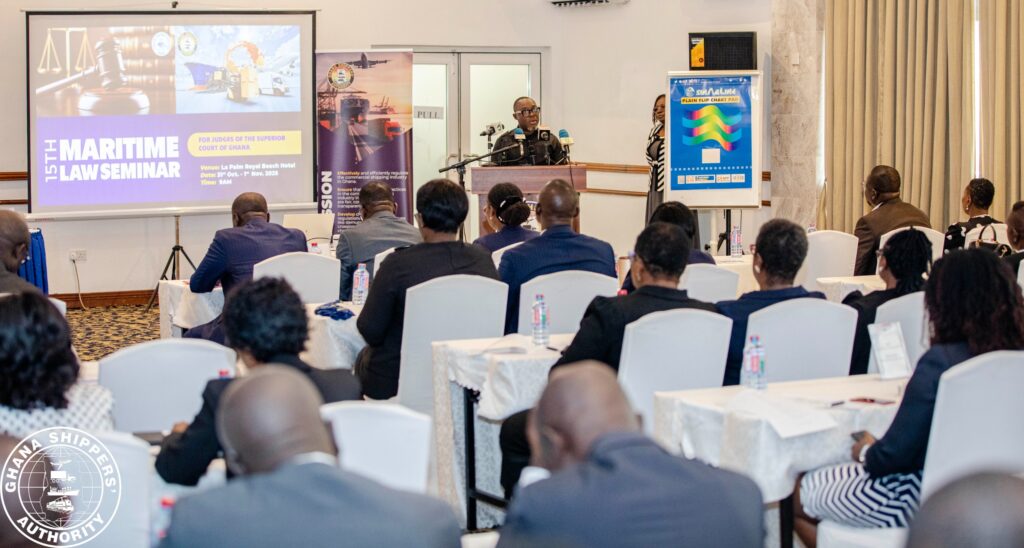 The two-day seminar, fully sponsored by the Ghana Shippers’ Authority (GSA), and organized in collaboration with the Judicial Training Institute (JTI), brought together judges of the Superior Courts drawn from across the country, Maritime Law experts, policymakers, industry players. The seminar provided a forum for exposition and deliberation on how law and commerce must work hand in hand to drive Ghana’s socio-economic transformation.
The two-day seminar, fully sponsored by the Ghana Shippers’ Authority (GSA), and organized in collaboration with the Judicial Training Institute (JTI), brought together judges of the Superior Courts drawn from across the country, Maritime Law experts, policymakers, industry players. The seminar provided a forum for exposition and deliberation on how law and commerce must work hand in hand to drive Ghana’s socio-economic transformation.
Speakers including acting Chief Justice, His Lordship, Justice Paul Baffoe-Bonnie, GSA’s Chief Executive Officer, Professor Ransford Gyampo, Director of JTI, Justice Imoro Osifo Amadu Tanko, and the Chairperson for the seminar, Justice Emmanuel Yonny Kulendi were agreeable that, the judiciary must be one that is not only interpreting the law, but is also shaping the story of Ghana’s socio-economic development.
Delivering the keynote address, acting Chief Justice, His Lordship Justice Baffoe-Bonnie praised the Ghana Shippers’ Authority and the Judicial Service for their unwavering commitment to facilitating excellence in Maritime Law jurisprudence as well as its adjudication.
He described the annual seminar as a vital bridge between the world of commerce and the chambers of justice, a space where judges and maritime professionals learn from each other.
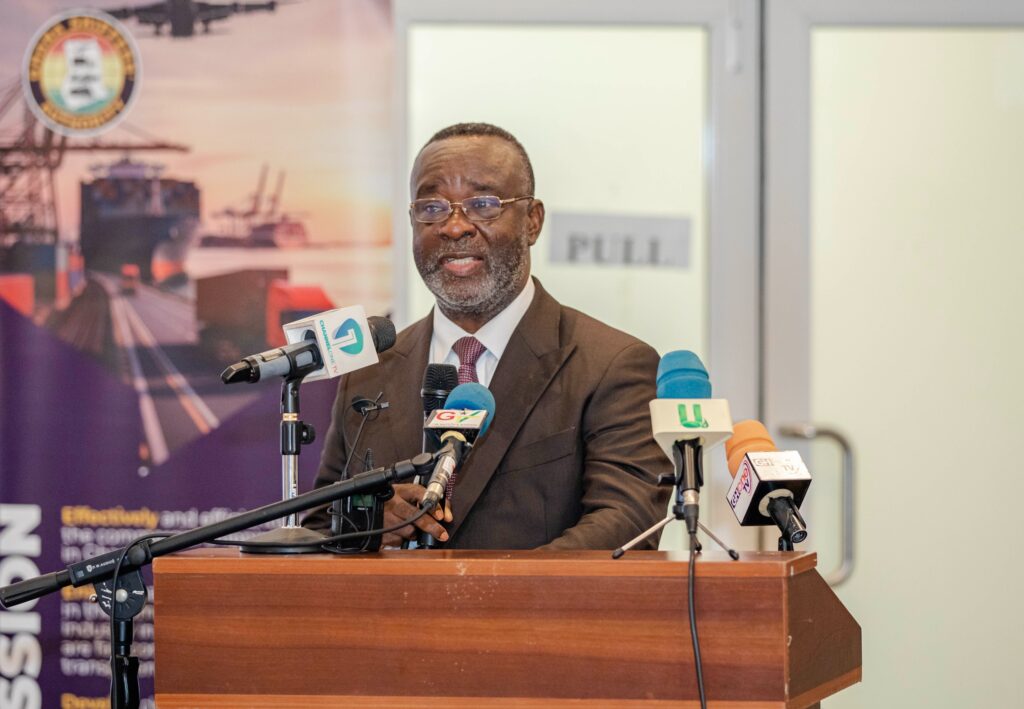 “The judiciary must not only be equipped with legal knowledge but also with economic insight and deep understanding of international best practices,” he said. “Justice delivered must promote rather than constrain trade.”
“The judiciary must not only be equipped with legal knowledge but also with economic insight and deep understanding of international best practices,” he said. “Justice delivered must promote rather than constrain trade.”
Justice Baffoe-Bonnie highlighted the significance of Act 1122, the amended law that governs the operations of the Ghana Shippers’ Authority. The law, he explained, is an enabler for the judiciary to act with balance, foresight, and fairness.
“The law must ensure fairness and inspire confidence that Ghana is a trusted, reliable, and predictable partner in global trade,” he added.
He reminded the judges that fairness, proportionality, and timeliness are not just virtues, but are economic imperatives for a country that is striving to become a regional hub for shipping and logistics.
In a speech that mixed candour with conviction, Professor Ransford Gyampo, Chief Executive Officer of the Ghana Shippers’ Authority, reflected on his journey from academia to leadership in the national corporate space.
He admitted that his time in the shipping and logistics industry has been both humbling and eye-opening. It has been a space where theory has met reality, and law has met logistics. He has discovered that;
“Trade is Ghana’s bloodstream, the artery that connects us to the wider world.” He, accordingly, opined that;
“Our duty is to protect all interests with equity and transparency. The judiciary remains the conscience of the law that gives legitimacy to every regulation.”
Prof. Gyampo reaffirmed the GSA’s commitment to His Excellency President John Mahama’s 24-hour economy policy, explaining that the Authority is investing heavily in digitalisation, infrastructure, and compliance systems to make Ghana’s shipping and logistics operations more efficient, transparent, and globally competitive.
He revealed that the GSA, together with the Attorney-General’s Department, is nearing the finalisation of a new Legislative Instrument (L.I.) to facilitate the implementation of Act 1122. He asserted that;
“When the rule of law is applied with fairness and timeliness, it becomes more than a moral virtue, it becomes an economic advantage that enhances investor confidence and growth.”
Justice I. O. Amadu Tanko, Director of the JTI, urged the judiciary to stay ahead of global shifts in shipping, trade, and technology. He highlighted that the maritime world is entering a new era marked by decarbonisation, digital documentation, and the rise of artificial intelligence, all of which are changing how commerce and justice intersect.
“Shipping is decarbonising, trade documents are going digital, and the Blue Economy concept is evolving,” he said. “These developments are creating new technical and jurisdictional challenges that require sharper judicial expertise.”
He cautioned that the growing use of AI-assisted systems will bring novel evidentiary and ethical challenges, from digital authentication to questions about AI-generated signatures, requiring the courts to adapt their reasoning without compromising fairness or accuracy.
The Chairperson for the seminar, Justice Emmanuel Yonny Kulendi, a Justice of the Supreme Court, described maritime law as one of the most critical pillars of Ghana’s economic growth. He reminded the audience that where trade thrives, disputes naturally follow, and it is the responsibility of the courts to resolve those disputes in ways that preserve trust and predictability.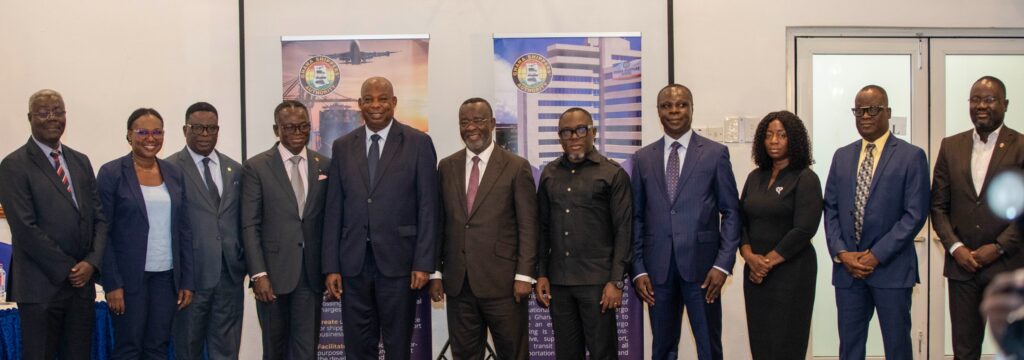
“Where commerce thrives, disagreements will inevitably arise, and the courts remain the ultimate forum for resolution,” he said. “Our effectiveness as arbiters of justice directly influences Ghana’s competitiveness and investor confidence.”
Justice Kulendi observed that Ghana’s maritime infrastructure now ranks among the best in the world, hosting some of the largest vessels on the globe. He further said that it is imperative that the judiciary’s knowledge and reasoning evolve alongside this progress.
“Although our body of maritime legislation is strong, coherence and consistency remain key,” he said. “We must keep our laws harmonised and our judges equipped to interpret them with clarity and confidence.”
Representing the Attorney-General and Minister for Justice, Chief State Attorney Mrs. Grace Oppong Dolphy commended the Ghana Shippers’ Authority and the Judicial Service for their continued collaboration in keeping the judiciary abreast of developments in maritime jurisprudence through the maritime seminar. She reaffirmed the Minister’s commitment to ensuring that the Legislative Instrument (L.I.) underpinning the implementation of Act 1122 is passed in a timely manner.
Resource persons; Justice Yaw Darko Asare and Justice Richard Adjei-Frimpong, both of the Supreme Court, together with Dr. Kofi Mbiah, Esq., a distinguished Maritime Law expert and former CEO of the Ghana Shippers’ Authority took turns to thoroughly discuss the topics for the seminar, which included “Carriage of Goods by Sea Law in Ghana: Time for Needed Change”; “The Legal Regime for the Arrest of Ships in Ghana”; and “Security in the Maritime Domain and Ghana’s Criminal Law Regime.”
Participants heartily interrogated, contributed, and made suggestions to further enrich the biennial event.
On Saturday, 1st November 2025, the participating judges toured the Tema Port, to gain first-hand insight into the day-to-day operations of Ghana’s busiest port, an experience many of them described as eye-opening and helpful for their work.
As the curtains fell on the two-day seminar, one message stood out clearly: law and trade must move together.
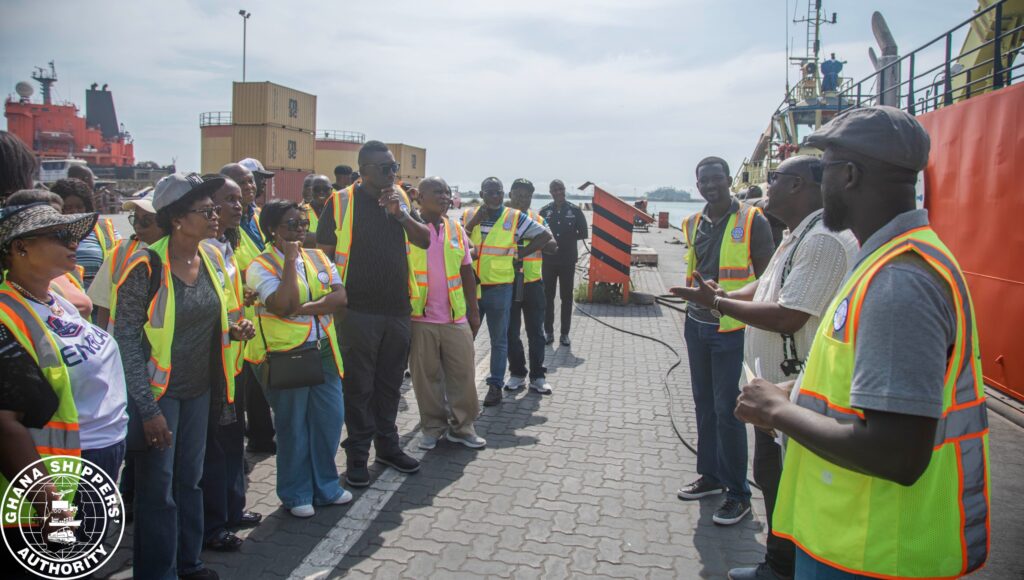 The forum underscored that the judiciary’s efficiency, insight, and fairness are central to Ghana’s ambition of becoming an international trade hub for West Africa. It also reflected a growing understanding that the courts are not merely arbiters of disputes but are strategic partners in nation-building.
The forum underscored that the judiciary’s efficiency, insight, and fairness are central to Ghana’s ambition of becoming an international trade hub for West Africa. It also reflected a growing understanding that the courts are not merely arbiters of disputes but are strategic partners in nation-building.
Justice Amadu Tanko concluded thus;
“Our courts must be both guardians of legal tradition and pioneers of judicial innovation.”
“Through continuous learning and engagement with emerging technologies, we will ensure that justice in the maritime, shipping and logistics industry remains relevant, robust, and globally competitive.”
In the end, the 15th Maritime Law Seminar for Judges was more than an academic exercise, it was a national statement: that Ghana’s courts, ports, and commerce are steering in the same direction towards fairness, progress, and sustainable prosperity.
Attached below are photos from the 15th Maritime Law Seminar:


